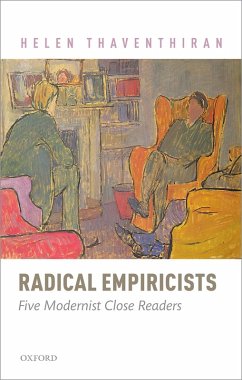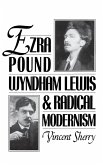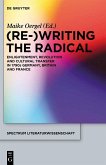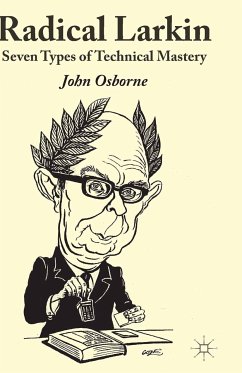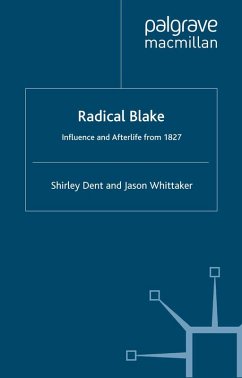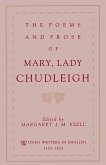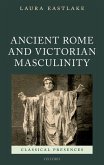Radical Empiricists presents a new history of criticism in the first half of the twentieth-century, against the backdrop of the modernist crisis of meaning. Our received idea of modernist criticism is that its novelty lay in being very empirical: critics believed in looking closely at words on the page. Such close reading has since been easy to ridicule but my book seeks to consider whether this is fair: have we, in the rush either to dismiss, or even to defend, the idea of close reading, often failed to look closely at what it involves in practice? Against this oversight, Radical Empiricists turns close reading back on itself, proposing some innovative readings of the prose of five major modernist poet-critics: I.A. Richards, T.S. Eliot, William Empson, R.P. Blackmur, and Marianne Moore. The book is divided into two parts, preceded by an introduction that explores what these five writers share: a radical self-consciousness about the key critical concept, 'meaning'. Part I, 'How to read', considers the prose techniques of Eliot, Richards and Empson as they push at the boundaries of verbal analysis in other disciplines: experimental psychology and anthropology, classical commentary and textual criticism. Part II introduces Blackmur and Moore, alongside Empson, and takes a more polemical look at how their critical styles defy various modernist orthodoxies about 'how not to read' (for example, that paraphrase always destroys poetic meaning). Many of these orthodoxies remain current: re-visiting their history, and attending to the rich detail of critical prose styles, can allow us to lift some old, unreflective constraints on our ways of knowing about poems.
Dieser Download kann aus rechtlichen Gründen nur mit Rechnungsadresse in A, B, BG, CY, CZ, D, DK, EW, E, FIN, F, GR, HR, H, IRL, I, LT, L, LR, M, NL, PL, P, R, S, SLO, SK ausgeliefert werden.

